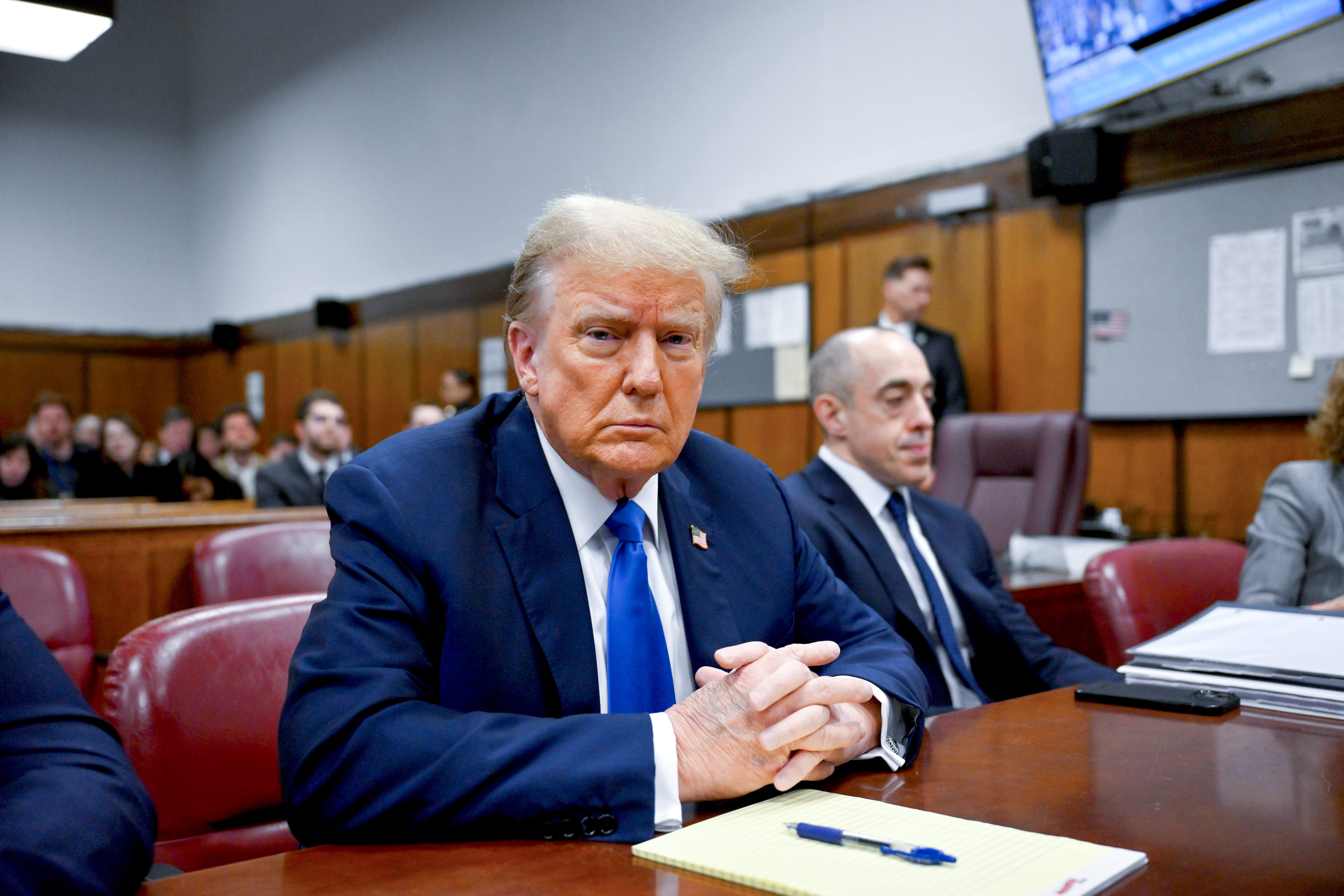Updated
Ex-Publisher David Pecker Takes Stand as First Witness in Trump Trial
Save

Former President and Republican presidential candidate Donald Trump looks on at Manhattan Criminal Court during his trial for allegedly covering up hush money payments linked to extramarital affairs, in New York on April 22, 2024. Angela Weiss/Pool/AFP via Getty Images
Here is the latest
•
Trump: Trial Going 'Very Well'
•
First Witness Takes the Stand
•
Habba: Cases Against Trump a 'Disgrace'
•
Trump Civil Case Attorneys Make an Appearance
•
Blanche: Trump Not Charged for Conspiracy